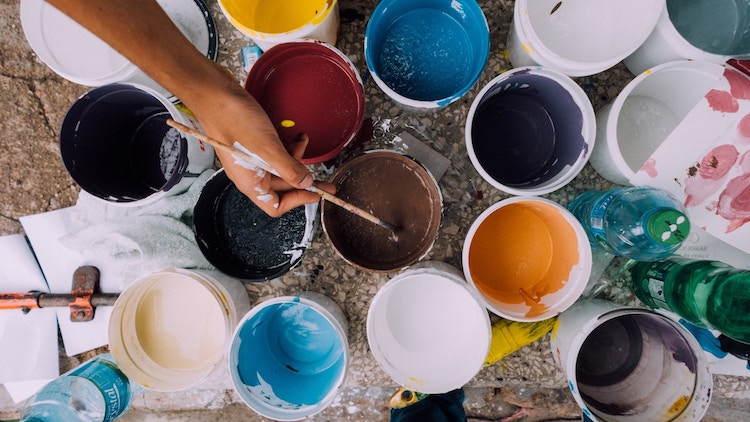
Photo: russn_fckr
This post may contain affiliate links. If you make a purchase, My Modern Met may earn an affiliate commission. Please read our disclosure for more info.
They often say that wisdom comes with age, and this can be especially true when it comes to your career. Any creative field is difficult, and venturing down the path to become any type of artist takes courage. But over time, the knowledge and expertise gained can make you look back on decisions you made when just starting out with fresh eyes.
So, what would you say to yourself if you could turn back time and give yourself career advice? This was the question we posed to six different artists—each at different phases of their career and practicing different types of art. And while it’s not possible to go back to the past, their answers are a helpful way for burgeoning artists to consider what really matters when starting out. From sharpening business skills to keeping motivation high, here are some lessons they won’t tell you in school.
Six artists share what career advice they’d give to their younger selves.
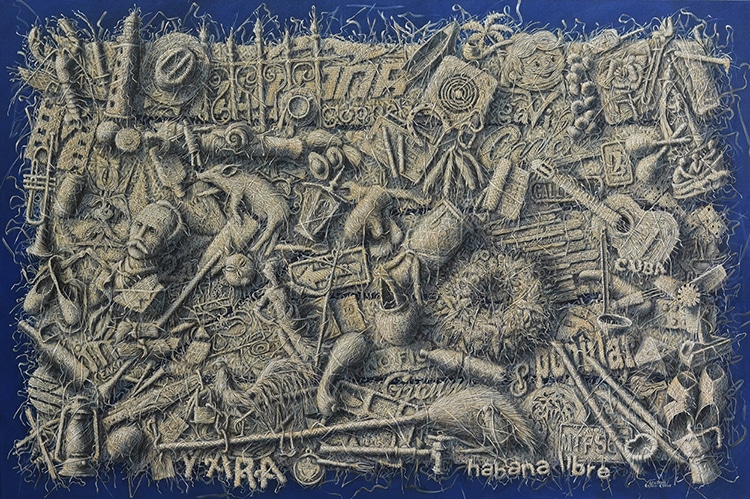
Alexi Torres. READ MORE: Interview: Artist Creates “Woven” Paintings of How Man and Nature Are Connected
Alexi Torres
Cuban artist Alexi Torres creates large-scale oil paintings that appear as though they are knitted or woven. His work is exhibited both in Cuba and abroad, with paintings in the collections of the Museum of Contemporary Art Georgia and the Center for the Study of African American Art at the University of Maryland.
“For no reason stop creating, and do it in harmony with your inspiration. In that state of mind, wonders happen. Every work, good or bad, will teach you something that you needed. Test and expand yourself a bit more to the unknown in every work—that’s how you learn and grow as an artist. And keep it up with social media and promoting your work.”
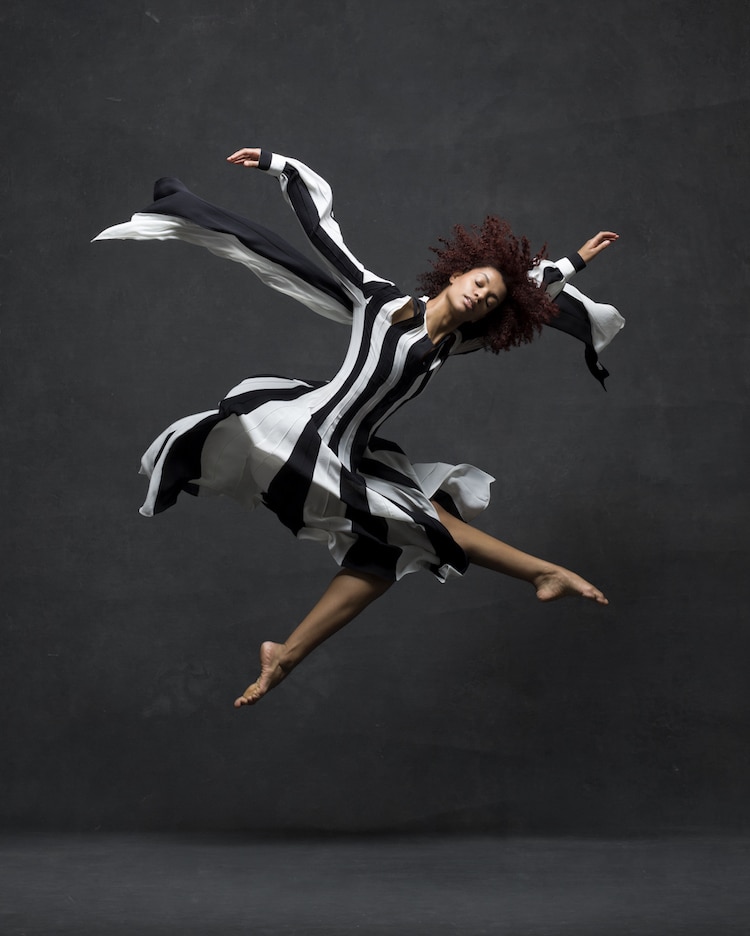
NYC Dance Project. READ MORE: Interview: Unique Graceful Movements of Dancers Frozen in Time
NYC Dance Project
NYC Dance Project is the brainchild of photographers Ken Browar and Deborah Ory. Since 2015, they’ve collaborated with dancers at the American Ballet Theatre, New York City Ballet, and Alvin Alley American Dance Theatre. They’ve published one book—The Art of Movement—and are currently working on a second book with Rizzoli that will be published in 2019.
“Being an artist is not the easiest path to follow, but if that is where your calling is, you must follow your passion. When you feel strongly and passionately about your work, eventually you will be able to make a living at it. It’s ok to not understand exactly how your career path will look—it will take unexpected twists and turns and there is no way to control it, so have faith it will be ok. Keep working hard and make your work your own, your unique signature and voice will be what gets it noticed from other artists.”

Maria Sahai. READ MORE: Interview: Photographer Spends 5 Years Documenting Life in World’s Northernmost Settlement
Maria Sahai
Landscape and nature photographer Maria Sahai specializes in images of the Arctic. Also a public speaker and writer, Sahai also runs Full Life Photo Adventures with her husband Karim.
“Beginner photographers often view more experienced artists as unreachable. I remember how many times I had a desire to ask a photographer whose work I admire about her technique, a personal path or for advice about my images. But, shame on me, I rarely did, because I always assumed the person was too important and too busy to bother answering me. Luckily, I got more courageous with time and the reality was that 90% of my questions were met with a lot of openness and friendliness. Now every now and then I get emails from beginner photographers asking for advice and I make sure to respond to each one of them. I’d say to my younger self —’Go for it! You’ll be surprised how often you’ll hear yes rather than no.’”
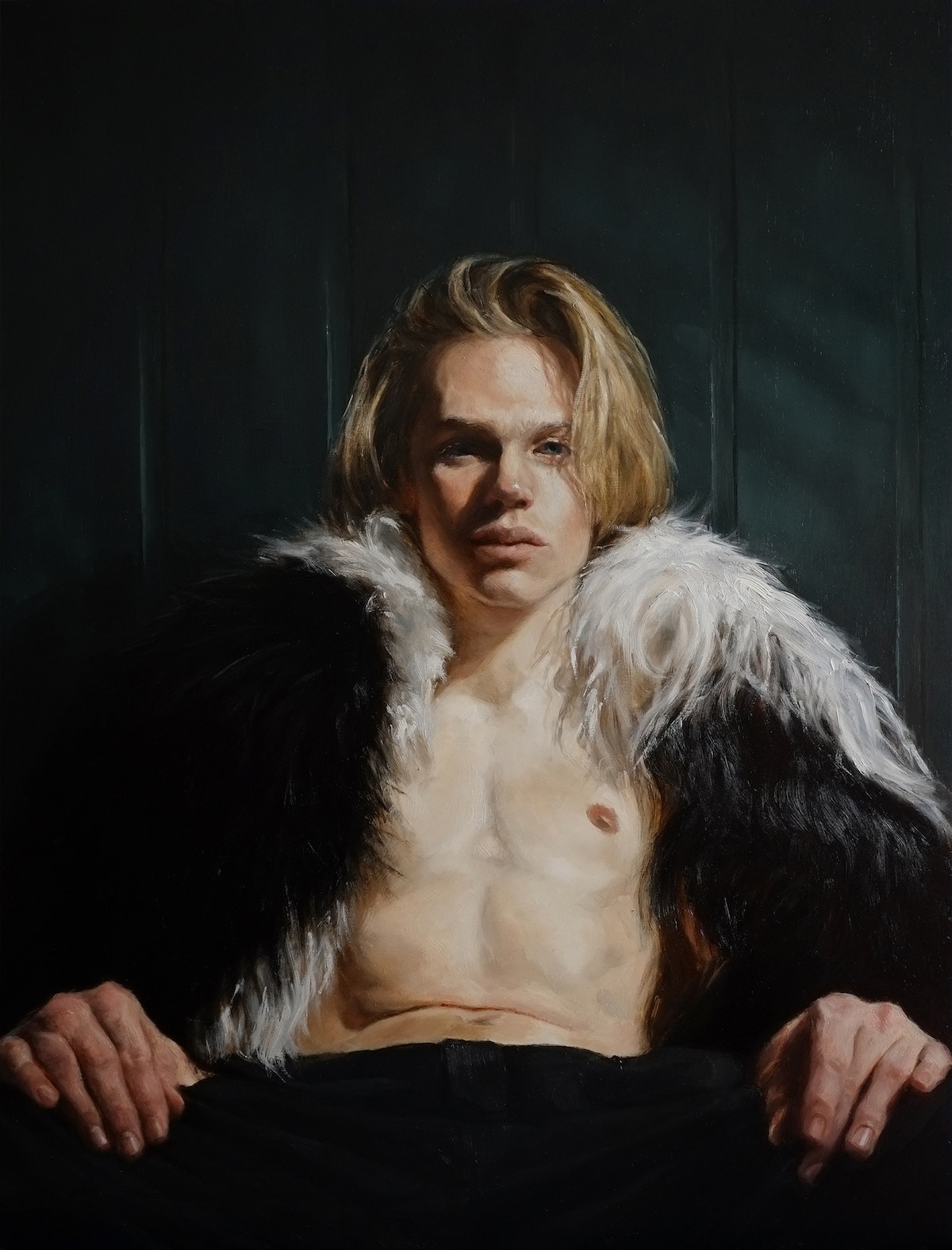
Alessandro Tomassetti. READ MORE: Interview: Artist Challenges Gender Norms Through Sensual Oil Paintings of Men
Alessandro Tomassetti
Painter Alessandro Tomassetti specializes in sensual oil paintings of men that challenge gender stereotypes. Based in Barcelona, he was a 2016 BP Portrait Award finalist at the National Portrait Gallery in London.
“Find your tribe and be generous with your knowledge. It’s easy to feel like you are in competition with other people who do what you do when, in reality, your painting or design selling comes down to the client’s taste and budget. Other artists and designers can actually be a great source of information and support on your path to building your career. Case in point, after years of trying to master certain painting techniques and best practices on my own, I joined a creative collective called Poets/Artists and found myself surrounded by working artists who were more than willing to share their workflow, business tips, gallery contacts etc. Joining the group changed the trajectory of my career from one that felt isolated to one that is part of an authentic movement.”
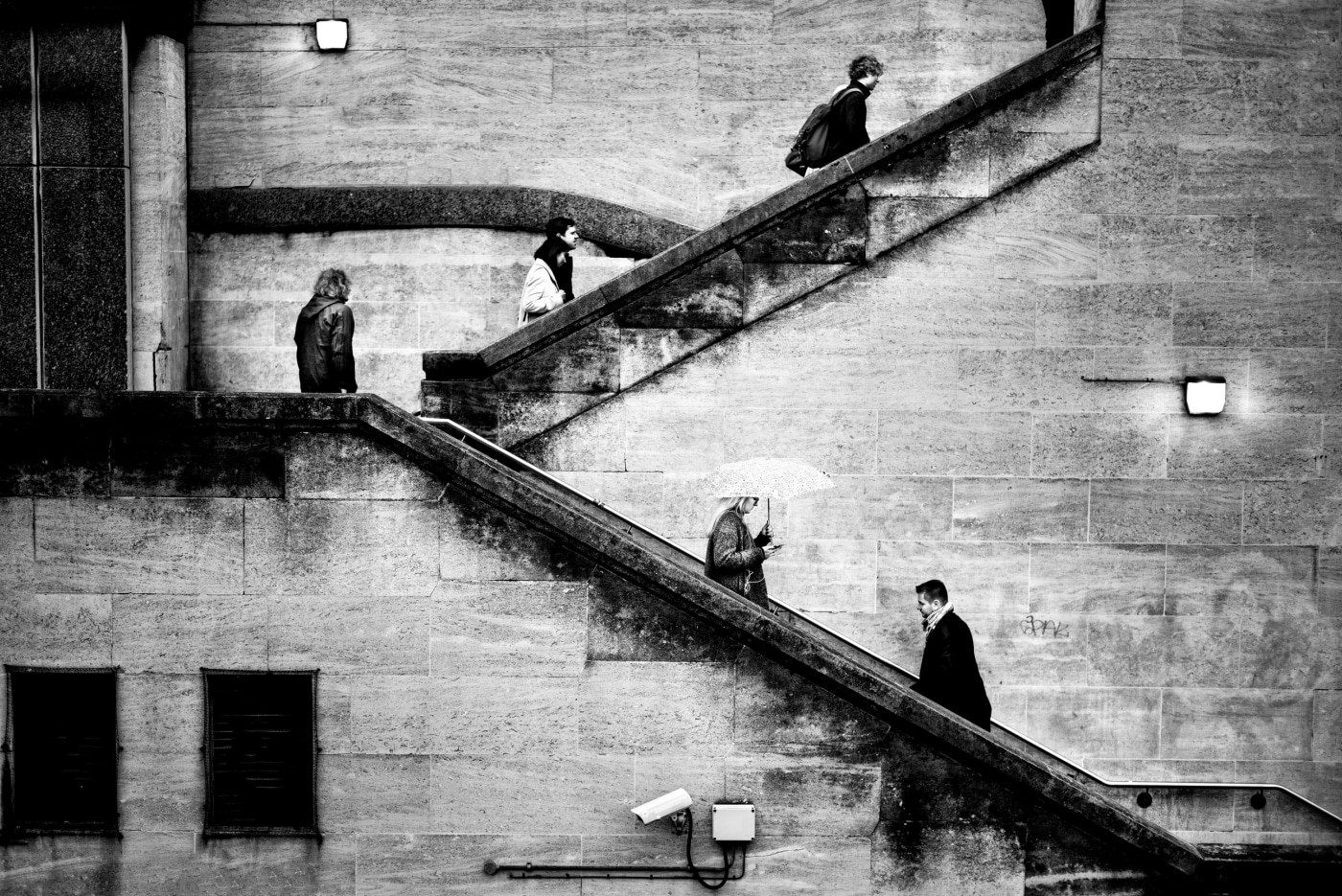
Alan Schaller. Read more: Interview: Street Photographer Explores the Loneliness of Contemporary Urban Life
Alan Schaller
Co-founder of Street Photography International (SPi), Alan Schaller is a well-respected photographer whose work has been featured in The Guardian, The Financial Times, and The Independent. His work has also been exhibited at the Saatchi Gallery and Leica Gallery in London.
“It is natural and understandable to seek inspiration and guidance from other people’s work, but always keep your own direction in mind. Be niche, and own the thing you do. If you don’t believe in the work you are producing, or are just making work to please someone else, how can you expect anyone to see your worth? Take advice from those whose work/position you respect and ignore the rest.”
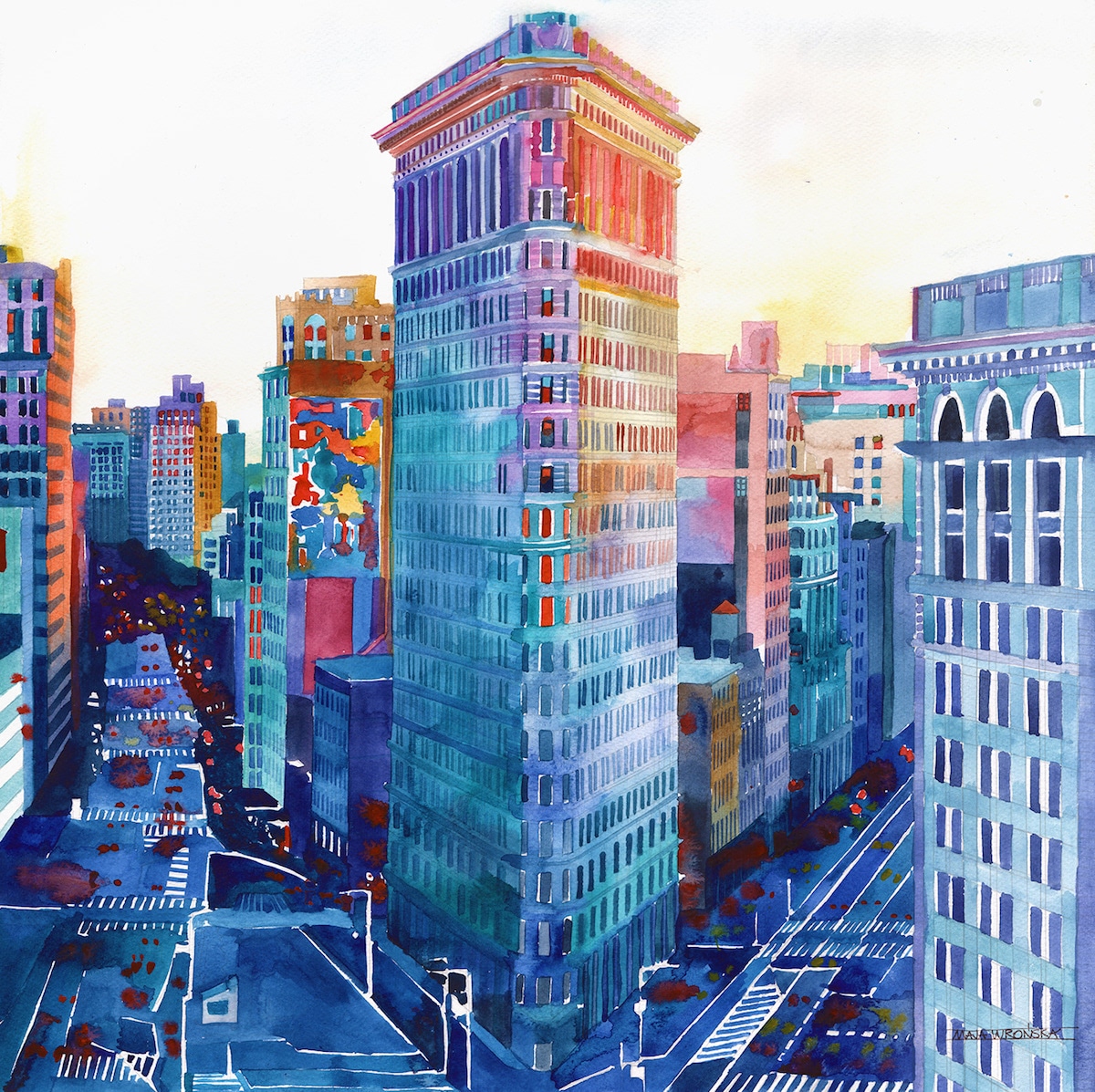
Maja Wrońska. READ MORE: Watercolor Paintings Capture the Beloved Monuments of Cities Around the World
Maja Wrońska
Polish architect and freelance illustrator Maja Wrońska is known for her impressive watercolors of architectural monuments. She has collaborated with corporate clients like IKEA and actively sells her work online via platforms like Society6.
“I would probably tell myself that it’s fine not to go to all those parties, and take part in drawing classes instead of just staying at home and drawing, as I did. Also it’s a good decision to learn how to paint first and then start selling my works, as I also did. I would also say that selling art online is related to many skills, and the knowledge about those relations I’m still expanding.
First of all, if you’re not a native English speaker, you should learn English to be able to communicate with larger group of people. The next area is strictly business related—you will have to make decisions about who you want to work with and how much time you can invest in a particular area of your art. I would definitely tell myself to get to know quickly about copyright in general. Knowing laws and regulations is required. It’s important to know how to properly use photos as a reference for paintings. Knowledge of the law is really important to understand contracts you signed (at least in general). Sometimes asking a lawyer for advice while signing an important agreement is recommended.
I think it’s also handy to know digital software even when you’re a traditional artist. When you work as a freelancer you also must learn about social media and digital marketing. My parents both work as freelancers, so I was generally prepared for this type of work.”
Inspired by this career advice? Join our Creative Careers Facebook group and share ideas with hundreds of other creatives.
Related Articles:
Interview: Founder of Creative Boom Talks Finding Inspiration and Career Advice
13 of the Best Creative Podcasts Offering Great Advice and Endless Inspiration
10 Questions to Ask Yourself Before Turning Your Creative Passion Into a Profession
Creative People Share What They Wish They’d Known at Every Age
